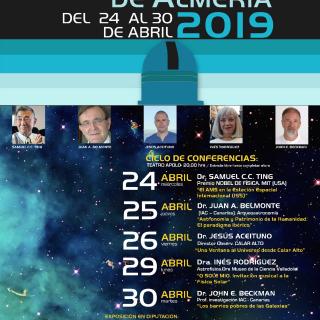Bibcode
Zaragoza-Cardiel, J.; Smith, Beverly J.; Rosado, Margarita; Beckman, J. E.; Bitsakis, Theodoros; Camps-Fariña, A.; Font, J.; Cox, Isaiah S.
Referencia bibliográfica
The Astrophysical Journal Supplement Series, Volume 234, Issue 2, article id. 35, 16 pp. (2018).
Fecha de publicación:
2
2018
Número de citas
15
Número de citas referidas
15
Descripción
We have identified 1027 star-forming complexes in a sample of 46
galaxies from the Spirals, Bridges, and Tails (SB&T) sample of
interacting galaxies, and 693 star-forming complexes in a sample of 38
non-interacting spiral (NIS) galaxies in 8 μm observations from the
Spitzer Infrared Array Camera. We have used archival multi-wavelength
UV-to IR observations to fit the observed spectral energy distribution
of our clumps with the Code Investigating GALaxy Emission using a double
exponentially declined star formation history. We derive the star
formation rates (SFRs), stellar masses, ages and fractions of the most
recent burst, dust attenuation, and fractional emission due to an active
galactic nucleus for these clumps. The resolved star formation main
sequence holds on 2.5 kpc scales, although it does not hold on 1 kpc
scales. We analyzed the relation between SFR, stellar mass, and age of
the recent burst in the SB&T and NIS samples, and we found that the
SFR per stellar mass is higher in the SB&T galaxies, and the clumps
are younger in the galaxy pairs. We analyzed the SFR radial profile and
found that the SFR is enhanced through the disk and in the tidal
features relative to normal spirals.
Proyectos relacionados

Estudios Cinemáticos, Estructurales y de Composición, de los Medios Interestelares e Intergalácticos
El objetivo básico del proyecto es investigar la evolución de las galaxias mediante el entendimiento de la interacción del medio interestelar y las estrellas. La técnica principal que utilizamos es la cinemática bidimensional de galaxias enteras observada por nuestro instrumento GHaFaS, un interferometro Fabry Perot en el telescopio William
Prof.
John E. Beckman